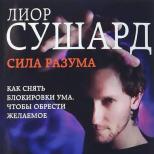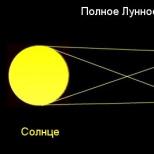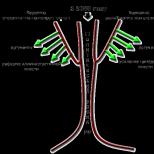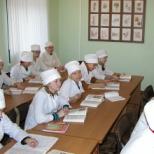Belgorod VTB was headed by Mikhail Nikishin, a native of Sberbank. Nikishin Mikhail Borisovich Hero of the Soviet Union Nikishin Mikhail Dmitrievich
USSR USSR
1933-1935, 1941-1946
freight forwarder and engineer
Mikhail Dmitrievich Nikishin(October 12; Voropino village, Ryazan province - December 29; Moscow) - Hero of the Soviet Union (1945), major (1949), military pilot.
Biography
After the war, he continued to command an air squadron in the Air Force (in the Leningrad Military District). Since April 1946, Captain M.D. Nikishin has been in reserve.
In 1948 he graduated from the Higher Flight Training School of the Civil Air Fleet. Until 1953, he worked as a pilot and pilot-inspector for piloting technique in Dallaga aviation, then as a freight forwarder and transport engineer in the Moscow office of the Norilsk Combine.
An excerpt characterizing Nikishin, Mikhail Dmitrievich
All Pierre's gaiety vanished. He anxiously questioned the princess, asked her to express everything, to confide her grief to him; but she only repeated that she asked him to forget what she said, that she did not remember what she said, and that she had no grief, except for what he knows - grief that the marriage of Prince Andrei threatened to quarrel her father with son.Have you heard about the Rostovs? she asked to change the conversation. “I was told that they would be coming soon. I also wait for Andre every day. I would like them to meet here.
How does he look at the matter now? asked Pierre, by which he meant the old prince. Princess Mary shook her head.
– But what to do? The year is only a few months away. And it can't be. I would only wish to spare my brother the first few minutes. I wish they would come sooner. I hope to get along with her. You have known them for a long time, - said Princess Marya, - tell me, hand on heart, the whole true truth, what kind of girl is this and how do you find her? But the whole truth; because, you understand, Andrei risks so much by doing this against the will of his father that I would like to know ...
An obscure instinct told Pierre that in these reservations and repeated requests to tell the whole truth, Princess Mary's hostility towards her future daughter-in-law was expressed, that she wanted Pierre not to approve of Prince Andrei's choice; but Pierre said what he felt rather than thought.
"I don't know how to answer your question," he said, blushing, not knowing why. “I definitely don’t know what kind of girl this is; I can't analyze it at all. She is charming. And why, I do not know: that's all that can be said about her. - Princess Mary sighed and the expression on her face said: "Yes, I expected this and was afraid."
- Is she smart? asked Princess Mary. Pierre considered.
“I think not,” he said, “but yes. She does not deign to be smart ... No, she is charming, and nothing more. Princess Mary again shook her head disapprovingly.
“Oh, I so desire to love her!” Tell her that if you see her before me.
“I heard that they will be in the next few days,” said Pierre.
Princess Marya told Pierre her plan of how, as soon as the Rostovs arrived, she would get close to her future daughter-in-law and try to accustom the old prince to her.
Marrying a rich bride in St. Petersburg did not work out for Boris and he came to Moscow for the same purpose. In Moscow, Boris was in indecision between the two richest brides - Julie and Princess Mary. Although Princess Mary, despite her ugliness, seemed to him more attractive than Julie, for some reason he was embarrassed to look after Bolkonskaya. On her last meeting with her, on the old prince's name day, to all his attempts to talk to her about feelings, she answered him inappropriately and obviously did not listen to him.
Julie, on the contrary, although in a special way, peculiar to her alone, but willingly accepted his courtship.
Julie was 27 years old. After the death of her brothers, she became very rich. She was now completely ugly; but I thought that she was not only just as good, but much more attractive than she had been before. She was supported in this delusion by the fact that, firstly, she became a very rich bride, and, secondly, that the older she became, the safer she was for men, the freer it was for men to treat her and, without assuming any obligations, enjoy her dinners, evenings and lively society, gathering with her. A man who ten years ago would have been afraid to go every day to the house where there was a 17-year-old young lady, so as not to compromise her and not to tie himself up, now went to her boldly every day and treated her not as a young lady, but as a a friend who has no gender.
The Karagins' house was the most pleasant and hospitable house in Moscow that winter. In addition to parties and dinners, every day a large company gathered at the Karagins, especially men who had dinner at 12 o'clock in the morning and stayed up until 3 o'clock. There was no ball, festivities, theater that Julie would miss. Her toilets were always the most fashionable. But, despite this, Julie seemed disappointed in everything, told everyone that she did not believe in friendship, or in love, or in any joys of life, and expected peace only there. She adopted the tone of a girl who has suffered great disappointment, a girl who seems to have lost a loved one or was cruelly deceived by him. Although nothing like this happened to her, they looked at her as such, and she herself even believed that she had suffered a lot in life. This melancholy, which did not prevent her from having fun, did not prevent the young people who visited her from having a good time. Each guest, coming to them, gave his debt to the melancholy mood of the hostess and then engaged in secular conversations, and dances, and mental games, and burime tournaments, which were in vogue with the Karagins. Only some young people, including Boris, went deeper into Julie's melancholy mood, and with these young people she had longer and more solitary conversations about the futility of everything worldly, and to them she opened her albums covered with sad images, sayings and poems.
Julie was especially affectionate towards Boris: she regretted his early disappointment in life, offered him those consolations of friendship that she could offer, having suffered so much in her life herself, and opened her album to him. Boris drew two trees for her in an album and wrote: Arbres rustiques, vos sombres rameaux secouent sur moi les tenebres et la melancolie. [Rural trees, your dark boughs shake off gloom and melancholy on me.]
Mikhail Dmitrievich Nikishin(October 12, 1907; Voropino village, Ryazan province - December 29, 1982; Moscow) - Hero of the Soviet Union (1945), major (1949), military pilot.
Biography
Born on October 12 (25), 1907 in the village of Voropino, Arkhangelsk volost, Yegoryevsky district, Ryazan province. In 1917 he graduated from the 3rd grade of a school in the village of Arkhangelskoye. He worked in agriculture. From 1924 he lived in Moscow. He worked as a carpenter at construction sites and a cement-lime plant. In 1933 he graduated from the 3rd year of the Moscow Construction and Design College.
In the army since June 1933. In 1935 he graduated from the Engels Military Aviation Pilot School. Since December 1935, foreman M.D. Nikishin has been in reserve.
In 1936-1938 - an instructor pilot of the Dmitrovsky flying club, since 1938 - a pilot of the construction department of the North Pechora railway(Komi Republic). Back in the army since September 1941.
Member of the Great Patriotic War: from September 1941 - a pilot of the 68th aviation-based area, in September 1942 - March 1943 - an instructor pilot of the 16th separate training aviation regiment (Volkhov Front). He made 214 sorties on airplanes on special missions. In March 1943 - May 1945 - pilot, deputy commander and commander of an air squadron of the 448th assault aviation regiment (281st assault aviation division Volkhov, 3rd Baltic and Leningrad fronts). He made more than 87 sorties on the Il-2 attack aircraft to strike at enemy manpower and equipment. Participated in the defense and lifting of the blockade of Leningrad, Novgorod-Luga, Vyborg, Narva, Tallinn and Moonsund operations.
For courage and heroism shown in battles, by the Decree of the Presidium of the Supreme Soviet of the USSR of February 23, 1945, Captain Nikishin Mikhail Dmitrievich was awarded the title of Hero of the Soviet Union with the Order of Lenin and the Gold Star medal.
After the war, he continued to command an air squadron in the Air Force (in the Leningrad Military District). Since April 1946, Captain M.D. Nikishin has been in reserve.
In 1948 he graduated from the Higher Flight Training School of the Civil Air Fleet. Until 1953, he worked as a pilot and pilot-inspector for piloting technique in Dallaga aviation, then as a freight forwarder and transport engineer in the Moscow office of the Norilsk Combine.
Awards and titles
- Hero of the Soviet Union (02/23/1945);
- Order of Lenin (02/23/1945);
- two Orders of the Red Banner (08/30/1943; 07/25/1944);
- Order of the Patriotic War, 1st degree (05/24/1944);
- Order of the Patriotic War, 2nd degree (06/17/1944);
- Order of the Red Star (6.08.1949);
- medals.
- Honorary citizen of the Shatura region.
Memory
- A monument to M. D. Nikishin was erected in the village of Pyshlitsy.
- A memorial plaque to M.D. Nikishin was installed in the city of Shatura.
Belgorod VTB headed by a native of Sberbank Mikhail Nikishin

Belgorod. 04/20/2017. site - Mikhail Nikishin, who came from Sberbank's corporate client department, has been appointed the new head of VTB's operations office in Belgorod instead of Alexei Nozdrin, reporters were told at a press conference.
The new head of the Belgorod VTB was introduced by the head of the regional business department of the regional network department - vice-president of VTB Bank Evgeny Orlov. According to him, Mikhail Nikishin has proven himself in working with corporate clients.
Mr. Nikishin himself, in his new position, sets himself the task of doubling the loan portfolio in the medium-sized business sector and maintaining the level of service in working with large clients.
“I see my key task in developing relations with the business community and increasing the share of the bank's presence, both in lending and in other business areas,” Mikhail Nikishin noted.
He added that there are prerequisites for growth in the bank, as the loan portfolio of the Belgorod division grew by 10% in the first quarter. And besides the key projects for the Belgorod region in agriculture, the bank intends to focus on cooperation with industrial production companies.
In general, as Yevgeny Orlov noted, like the entire Russian banking sector, VTB received significant development dynamics through investment lending and support for state programs for import substitution and agricultural development. So, over the past year in the Belgorod region, loans worth more than 1 billion rubles were issued for investment projects. And, according to Mr. Nikishin, this year he intends to continue working in this direction and participate in all projects.
Nikishin Mikhail Dmitrievich - commander of the air squadron of the 448th assault aviation regiment (281st assault aviation division, 13th air army, Leningrad Front), senior lieutenant.
Born on October 12 (25), 1907 in the village of Voropino, Arkhangelsk volost, Egoryevsky district, Ryazan province (now Pyshlitsky rural settlement Shatursky district of the Moscow region). Russian. In 1917 he graduated from the 3rd grade of a school in the village of Arkhangelskoye (now the village of Pyshlitsy, Shatursky district). He worked in agriculture. From 1924 he lived in Moscow. He worked as a carpenter at construction sites and a cement-lime plant. In 1933 he graduated from the 3rd year of the Moscow Construction and Design College.
In the army since June 1933. In 1935 he graduated from the Engels Military Aviation Pilot School. Since December 1935, foreman M.D. Nikishin has been in reserve.
In 1936-1938 he was an instructor pilot of the Dmitrovsky flying club, since 1938 he was a pilot of the construction department of the North Pechora Railway (Komi Republic). Back in the army since September 1941.
Member of the Great Patriotic War: from September 1941 - pilot of the 68th air base area, in September 1942 - March 1943 - instructor pilot of the 16th separate training aviation regiment (Volkhov Front). He made 214 sorties on airplanes on special missions. In March 1943 - May 1945 - pilot, deputy commander and commander of an air squadron of the 448th assault aviation regiment (Volkhov, 3rd Baltic and Leningrad fronts). He made more than 87 sorties on the Il-2 attack aircraft to strike at enemy manpower and equipment. Participated in the defense and lifting of the blockade of Leningrad, Novgorod-Luga, Vyborg, Narva, Tallinn and Moonsund operations.
For courage and heroism shown in battles, by the Decree of the Presidium of the Supreme Soviet of the USSR of February 23, 1945 to the captain Nikishin Mikhail Dmitrievich He was awarded the title of Hero of the Soviet Union with the Order of Lenin and the Gold Star medal.
After the war, he continued to command an air squadron in the Air Force (in the Leningrad Military District). Since April 1946, Captain M.D. Nikishin has been in reserve.
In 1948 he graduated from the Higher Flight Training School of the Civil Air Fleet. Until 1953, he worked as a pilot and pilot-inspector for piloting techniques in Dallaga aviation, then as a freight forwarder and transport engineer in the Moscow office of the Norilsk Combine.
Major (1949). He was awarded the Order of Lenin (02/23/1945), 2 Orders of the Red Banner (08/30/1943; 07/25/1944), Orders of the Patriotic War 1st (05/24/1944) and 2nd (06/17/1944) degrees, Red Star (6.08. 1949), medals. Honorary citizen of the Shatura region.
In the village of Pyshlitsy, Shatursky district, Moscow region, a monument was erected, and in the city of Shatura - a memorial plaque to M.D. Nikishin.
Sources
Vorobyov V.P., Efimov N.V. Heroes of the Soviet Union: Ref. - St. Petersburg, 2010. Heroes of war. - Tallinn, 1984 Heroes of the Leningrad sky. - L .: Lenizdat, 1984 Heroes of the Soviet Union: short. biogr. words. T.2. - Moscow, 1988. Moscow Necropolis of Heroes. Volume 2. - Moscow, 2013. Hearts and stars. 2nd ed., add. Syktyvkar, 1971 Service card





